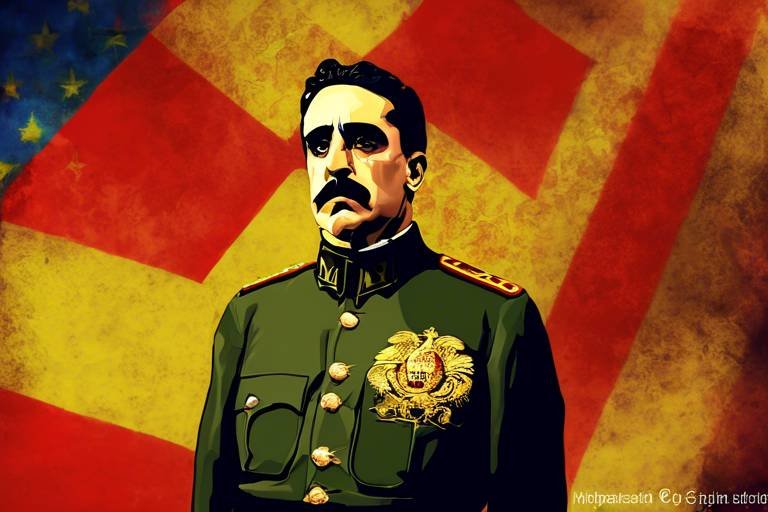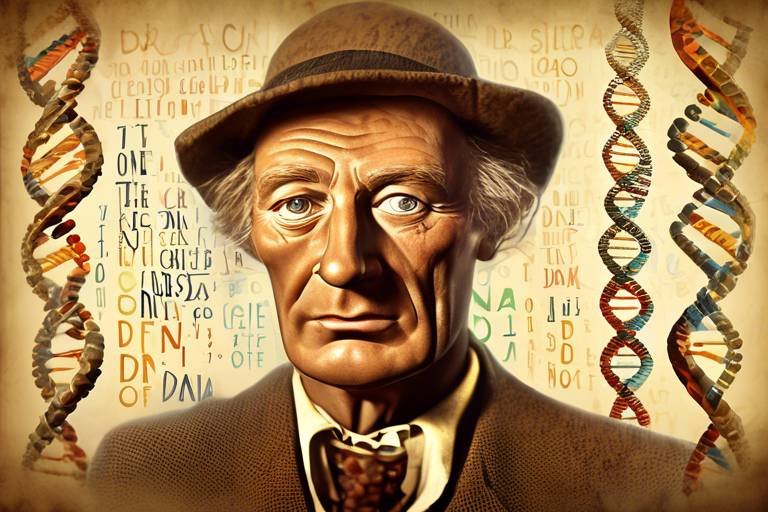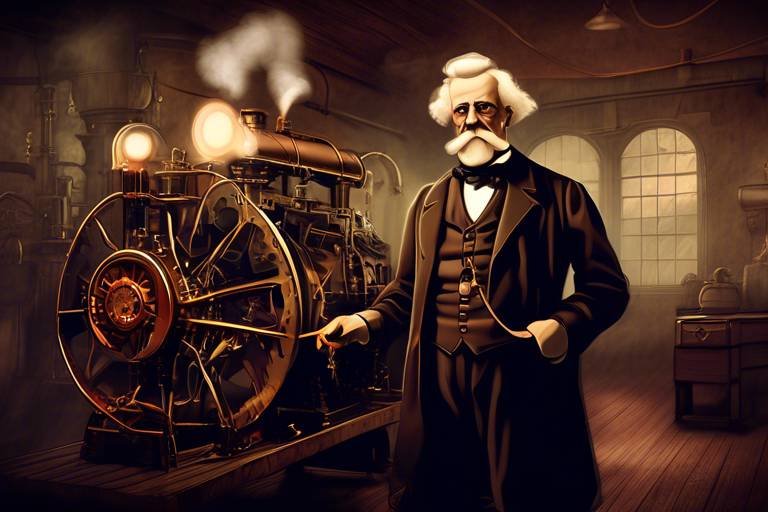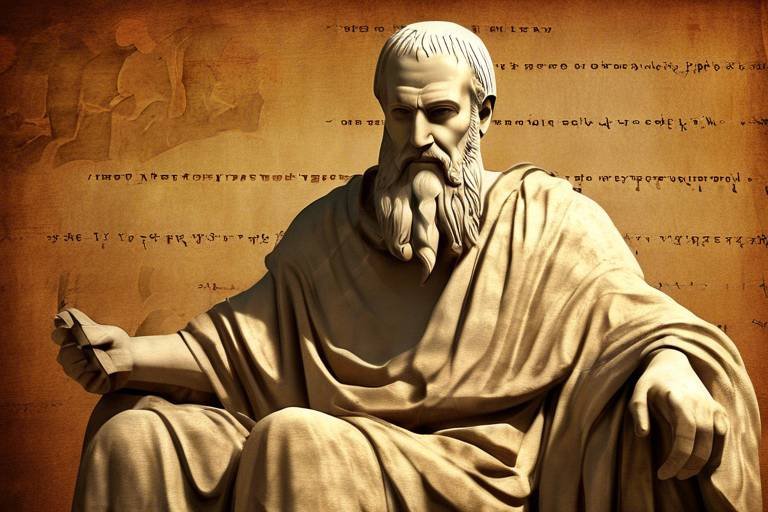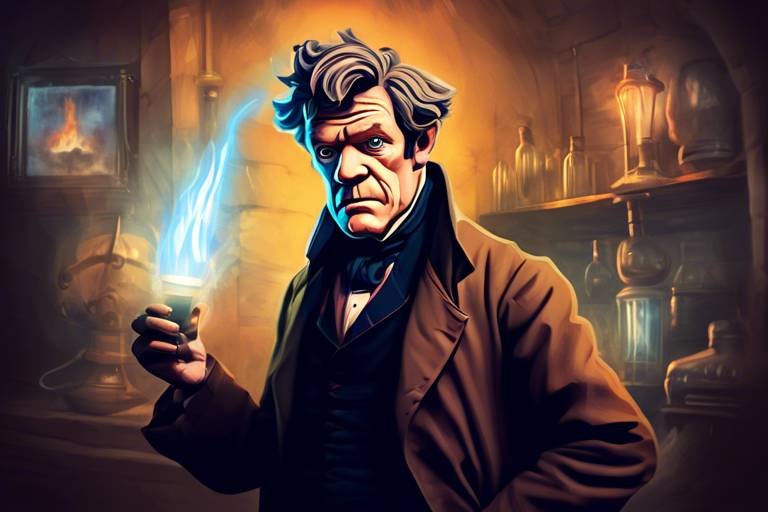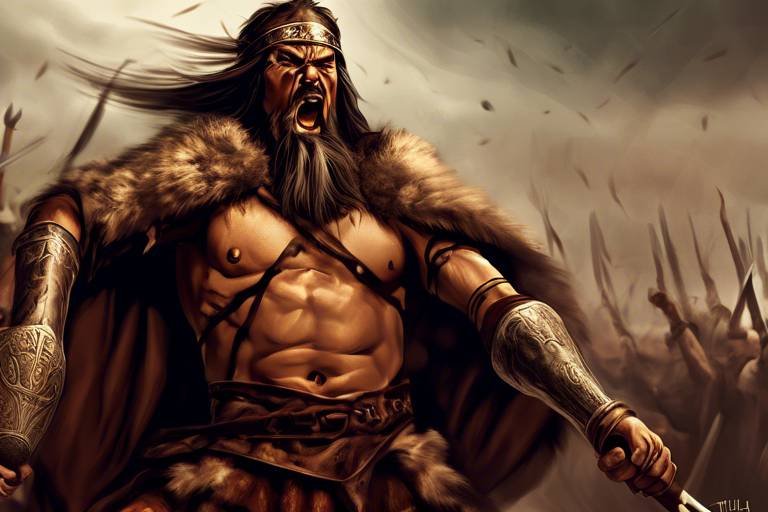Franco: The Spanish Dictator
Francisco Franco, often referred to simply as Franco, was a prominent figure in Spanish history, known for his authoritarian rule that spanned nearly four decades. Born in 1892 in Ferrol, Spain, Franco's early life was marked by his entry into the military at a young age, where he quickly rose through the ranks due to his strategic prowess and leadership skills. His military career paved the way for his eventual ascension to power within the Spanish military hierarchy, setting the stage for his controversial rule over the country.
As Franco's influence grew, so did his involvement in the political landscape of Spain. The tumultuous period of the Spanish Civil War provided the perfect opportunity for Franco to seize power, leading to the establishment of his authoritarian regime. His rule was characterized by stringent control, censorship, and suppression of political opposition, shaping Spain's society and economy in profound ways.
Internationally, Franco's regime navigated a delicate balance, maintaining neutrality during World War II while forging alliances with various countries. His foreign policy decisions and strategic alliances played a crucial role in shaping Spain's standing on the global stage, despite the country's isolation from the international community during his rule.
Despite his death in 1975, Franco's legacy continues to spark debates and controversies in modern Spain. The country grapples with the historical memory of his regime, with ongoing efforts to address the atrocities committed during his rule and reconcile with the past. The transition from dictatorship to democracy marked a significant turning point in Spain's history, ushering in a new era of political culture and societal change.
Historical perspectives on Franco's rule vary widely, with interpretations evolving over time as new evidence and research shed light on his era. The complexities of studying Franco's legacy in contemporary Spain highlight the enduring impact of his policies and social engineering initiatives on Spanish society, culture, and identity.

Early Life and Military Career
Francisco Franco, born in 1892 in El Ferrol, Galicia, Spain, experienced a childhood marked by the country's turbulent political landscape. His father served in the navy, instilling a sense of discipline and duty in young Franco. At the age of 14, he entered the Infantry Academy in Toledo, beginning his military training and setting the stage for his future career.
After graduating from the academy, Franco quickly rose through the ranks, showcasing strategic acumen and leadership skills. His military career took him to various posts across Spain and its colonies, where he gained valuable experience and earned a reputation for his unwavering loyalty to the Spanish crown.
During the Rif War in Morocco, Franco's decisive actions on the battlefield caught the attention of his superiors, propelling him into positions of increasing authority within the military hierarchy. By the age of 33, he had become the youngest general in Spain, a testament to his rapid ascent within the armed forces.
As the political tensions in Spain escalated in the 1930s, Franco found himself at the center of a brewing storm. The outbreak of the Spanish Civil War in 1936 presented him with a pivotal opportunity to assert his influence and shape the course of the conflict. Aligning himself with the Nationalist faction, Franco emerged as the leader of the rebellion against the Republican government, showcasing his strategic prowess and determination to achieve victory at any cost.
Through a series of military campaigns and political maneuvering, Franco consolidated his power and emerged as the dominant figure in post-war Spain. In 1939, he officially assumed the title of Head of State and established himself as the undisputed ruler of the country, marking the beginning of his authoritarian regime that would endure for nearly four decades.

Rise to Power
Francisco Franco, the Spanish dictator, held a firm grip on the country for nearly four decades, leaving an indelible mark on its history and society. Let's delve into the life and rule of this controversial figure and explore the key aspects that defined his leadership.
Francisco Franco's ascent to power was marked by tumultuous events that shaped the course of Spanish history. Born in 1892 in Ferrol, Spain, Franco's early years were marked by a strong military influence. His military career flourished, and he rose through the ranks, eventually becoming a prominent figure within the Spanish military hierarchy.
However, it was during the Spanish Civil War that Franco truly emerged as a central figure. Leading the Nationalist forces against the Republicans, Franco displayed strategic acumen and ruthlessness, ultimately securing victory in 1939. This triumph catapulted him into a position of unparalleled power, laying the foundation for his authoritarian regime.
Establishing himself as the Caudillo, or leader, Franco centralized authority, suppressed dissent, and implemented a repressive regime that tightly controlled all aspects of Spanish society. His rule was characterized by censorship, political repression, and the glorification of Spanish nationalism, creating a climate of fear and conformity.
Internationally, Franco's regime maintained a delicate balance, navigating the complex geopolitics of the time. Despite his sympathies towards fascist ideologies, Franco opted for neutrality during World War II, a decision that shielded Spain from direct conflict but also isolated the country on the global stage.
As Franco solidified his grip on power, his regime became synonymous with authoritarianism and oppression. Dissent was swiftly quashed, political opponents silenced, and any challenges to his rule met with brutal repression. The legacy of Franco's authoritarian rule continues to reverberate in modern Spain, shaping the country's political landscape and societal norms.

Authoritarian Rule
During his authoritarian rule, Francisco Franco implemented a centralized and repressive regime that tightly controlled all aspects of Spanish society. Known for his iron-fisted governance style, Franco established a dictatorial system that suppressed political opposition, restricted civil liberties, and enforced strict censorship.
Under Franco's rule, Spain experienced a period of political repression and cultural conservatism, with dissenting voices often silenced through intimidation or violence. The regime promoted a nationalist ideology that emphasized traditional values, Catholicism, and loyalty to the state, while targeting perceived threats to its authority.
Economically, Franco's regime favored a corporatist model that emphasized state control and intervention in the economy. Large sectors of the economy were monopolized by the state or closely aligned with government interests, leading to limited economic freedom and innovation.
One of the defining features of Franco's authoritarian rule was the extensive use of propaganda to shape public opinion and maintain control over the population. The regime utilized media outlets, educational institutions, and cultural events to promote its ideology and glorify Franco as the savior of Spain.
Additionally, Franco's regime relied heavily on a pervasive system of surveillance and repression to monitor and suppress dissent. Political opponents, intellectuals, and activists were often subjected to harassment, imprisonment, or exile, creating a climate of fear and distrust within Spanish society.
Despite the oppressive nature of his rule, Franco maintained a strong grip on power through a combination of military support, political maneuvering, and the cult of personality cultivated around him. His authoritarian regime left a lasting impact on Spain, shaping the country's political landscape, social norms, and collective memory for decades to come.

International Relations
When delving into Franco's international relations, one cannot overlook the intricate web of alliances and decisions that shaped Spain's position on the global stage during his authoritarian rule. Despite Spain's neutrality during World War II, Franco's regime maintained complex relationships with various international actors, balancing diplomatic considerations with internal priorities.
One key aspect of Franco's international relations was his cautious approach to foreign entanglements, seeking to safeguard Spain's interests while navigating the turbulent waters of post-war Europe. By avoiding direct involvement in the conflict, Franco managed to keep Spain out of the devastation that engulfed many other European nations.
However, this neutrality came at a cost, as Spain faced isolation and limited opportunities for economic growth and diplomatic partnerships. Franco's regime found itself in a delicate position, balancing between maintaining autonomy and seeking international recognition and support.
Despite these challenges, Franco's regime managed to establish crucial ties with certain countries, such as the United States, which viewed Spain as a strategic ally in the context of the Cold War. This relationship provided Spain with economic aid and military support, bolstering Franco's rule and stabilizing the country during a tumultuous period in global politics.
Furthermore, Franco's international relations strategy extended beyond mere diplomacy, encompassing efforts to shape Spain's image abroad and project a narrative of stability and modernization. Through cultural exchanges, tourism campaigns, and participation in international forums, Franco aimed to position Spain as a respected player on the world stage.
In conclusion, Franco's international relations were characterized by a delicate balancing act between neutrality and strategic alliances, shaping Spain's position in the post-war era and influencing the country's trajectory on the global scene. Understanding the complexities of Franco's foreign policy decisions sheds light on the challenges and opportunities faced by Spain during a pivotal period in its history.

Legacy and Controversies
Francisco Franco's legacy in Spain is a complex and contentious subject that continues to spark debates and controversies. As the leader of an authoritarian regime that lasted for nearly four decades, Franco left a lasting imprint on the country's history and society. His rule, characterized by repression, censorship, and political violence, has had profound effects on Spain's political landscape and collective memory.
One of the most significant controversies surrounding Franco's legacy is the debate over how his regime should be remembered and commemorated. While some view Franco as a national hero who saved Spain from chaos and communism during the Spanish Civil War, others see him as a brutal dictator responsible for widespread human rights abuses and the suppression of dissent.
Efforts to address Spain's historical memory and reckon with the legacy of Franco have been ongoing. The country has grappled with how to memorialize the victims of Francoist repression, reconcile with the past, and promote a more inclusive and democratic society. The exhumation of Franco's remains from the Valley of the Fallen in 2019 was a symbolic step towards confronting the dark legacy of his regime.
Despite the passage of time since Franco's death in 1975, his legacy continues to shape contemporary Spain in various ways. The enduring influence of Francoism on Spanish politics, culture, and society remains a topic of debate and reflection, highlighting the complexities of coming to terms with a difficult past and building a more democratic future.

Transition to Democracy
Transitioning from Franco's authoritarian rule to democracy was a monumental task for Spain, marked by challenges and complexities. The death of Franco in 1975 set the stage for a period of uncertainty and transformation as the country sought to establish a new political order. The process of democratization involved dismantling the institutions of the Franco regime and building a democratic framework based on principles of freedom, equality, and pluralism.
One of the key milestones in Spain's transition to democracy was the approval of the new constitution in 1978, which laid the foundation for a parliamentary monarchy and enshrined democratic values in the governance structure. This constitution represented a break from the past and signaled a commitment to a new era of political openness and accountability.
The transition period was not without its challenges, as different political factions and interest groups vied for power and influence in the nascent democratic system. The legacy of Franco's regime loomed large, creating tensions and divisions that needed to be addressed through dialogue, reconciliation, and institutional reforms.
Despite the obstacles, Spain successfully navigated the transition to democracy, holding its first democratic elections in 1977 and establishing a stable democratic system that has endured to this day. The process of democratization was a testament to the resilience and determination of the Spanish people to chart a new course for their country and leave behind the shadows of the past.

Historiography and Interpretations
When delving into the historiography surrounding Francisco Franco, one encounters a myriad of perspectives and interpretations that reflect the complex nature of his rule. Historians have grappled with portraying Franco either as a savior who brought stability to a fractured Spain or as a ruthless dictator who suppressed dissent and perpetuated a repressive regime.
Some scholars argue that Franco's authoritarian rule was a necessary evil to prevent the spread of communism and maintain order in a country torn apart by civil war. They highlight his efforts to modernize Spain's economy and infrastructure, albeit through coercive means that silenced opposition.
On the other hand, critics view Franco as a tyrant who trampled on human rights, suppressed regional identities, and stifled democratic aspirations. They condemn his use of propaganda, censorship, and political repression to consolidate power and maintain control over Spanish society.
The historiographical debate extends to the assessment of Franco's legacy in contemporary Spain. While some advocate for a nuanced understanding that acknowledges both positive and negative aspects of his rule, others push for a complete condemnation of his regime and a thorough reckoning with its dark chapters.
Moreover, interpretations of Franco's era continue to evolve as new historical evidence comes to light and societal perspectives shift. The ongoing dialogue among historians, policymakers, and the public reflects the enduring impact of Franco's rule on Spain's collective memory and national identity.

Impact on Spanish Society
Francisco Franco's impact on Spanish society was profound and far-reaching, leaving an indelible mark on the nation's cultural fabric. Through his policies and social engineering initiatives, Franco sought to mold Spanish society in his image, promoting traditional values and suppressing dissent. His regime enforced strict censorship, limiting freedom of expression and artistic creativity, while also imposing a rigid moral code on the population.
One of the key aspects of Franco's impact on Spanish society was his promotion of a unified national identity, emphasizing a homogenous vision of Spanishness that marginalized regional diversity. This centralization of power and cultural uniformity aimed to strengthen Franco's authoritarian rule and suppress any challenges to his authority.
Furthermore, Franco's regime implemented repressive measures to control dissent and maintain social order, leading to widespread fear and a climate of political repression. The use of state violence and surveillance instilled a sense of fear among the population, stifling opposition and dissent.
Additionally, Franco's policies regarding education and language aimed to instill a sense of loyalty to the regime and propagate a specific narrative of Spanish history, glorifying the authoritarian rule and downplaying the atrocities committed during the Civil War and under his dictatorship.
Moreover, Franco's impact on Spanish society extended to economic policies that favored a conservative, protectionist approach, limiting economic growth and innovation. The regime's emphasis on autarky and isolationism hindered Spain's economic development and integration into the global economy, contributing to long-term economic challenges.
In conclusion, Franco's legacy in Spanish society is complex and continues to be a subject of debate and reflection. His authoritarian rule left a lasting imprint on the nation's social, cultural, and political landscape, shaping the collective memory of the Spanish people and influencing the country's path to democracy and reconciliation.
Frequently Asked Questions
- Who was Francisco Franco?
Francisco Franco, commonly known as Franco, was a Spanish military general who ruled as a dictator in Spain for almost four decades. He played a pivotal role in the Spanish Civil War and established an authoritarian regime that profoundly impacted the country's history and society.
- What were some key aspects of Franco's authoritarian rule?
Franco's authoritarian rule was characterized by strict censorship, suppression of political opposition, and the centralization of power. His regime promoted nationalism, traditional values, and a strong Catholic influence, while dissent and freedom of expression were heavily restricted.
- How did Franco's legacy influence modern Spain?
Franco's legacy continues to be a subject of debate and controversy in Spain. His regime's actions, including human rights abuses and repression, have left a lasting impact on the country's historical memory. Efforts to address this legacy and reconcile differing perspectives on Franco remain ongoing.

